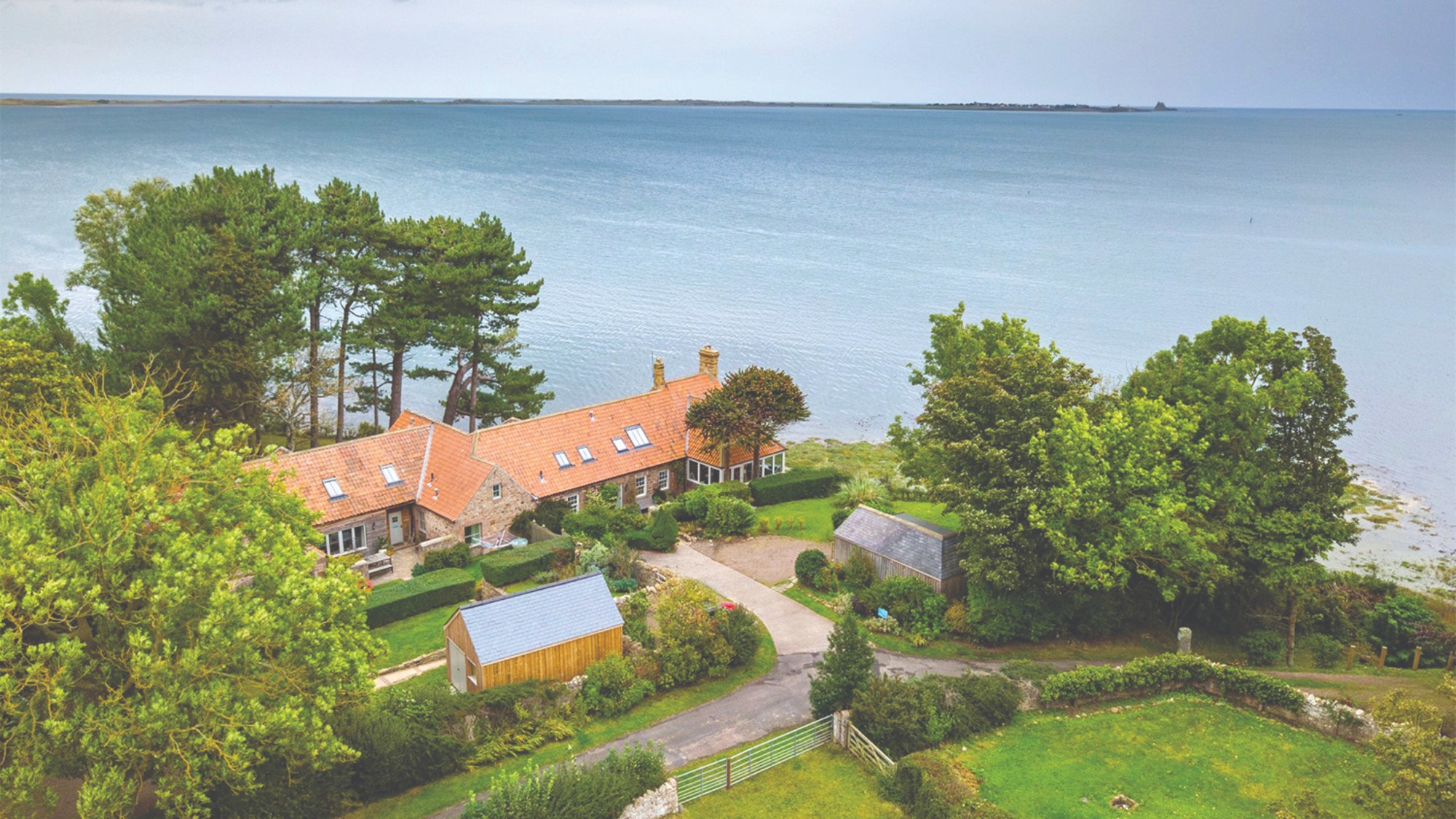This Hillary Clinton would've won
In What Happened, the 2016 candidate reveals she almost supported a UBI. Too bad she didn't. She would've won.

A free daily email with the biggest news stories of the day – and the best features from TheWeek.com
You are now subscribed
Your newsletter sign-up was successful
"Bernie would've won" has become something of a mantra among American leftists. Partially, it's just a pithy way to troll establishment Democrats. But it also suggests that Bernie Sanders' 2016 campaign represented a different form of politics: one that put ambitious ideas and a sense of public solidarity ahead of expertise and qualifications. And this alternative strategy would've beaten Donald Trump.
It turns out Hillary Clinton is having similar thoughts.
Her new memoir, What Happened, has set off a wave of takes and counter-takes on whether Clinton is helping the Democratic Party move forward, and whether she's taking enough personal responsibility for losing to Trump. None of which is terribly interesting.
The Week
Escape your echo chamber. Get the facts behind the news, plus analysis from multiple perspectives.

Sign up for The Week's Free Newsletters
From our morning news briefing to a weekly Good News Newsletter, get the best of The Week delivered directly to your inbox.
From our morning news briefing to a weekly Good News Newsletter, get the best of The Week delivered directly to your inbox.
What is interesting is the Clinton campaign that might have been. Because in What Happened, there is an absolutely astounding passage: Clinton almost made a universal basic income (UBI) a centerpiece of her campaign.
A UBI is a no-strings-attached monthly check, sent out by the government to every man, woman, and child in the country. The idea is to eliminate poverty and reduce inequality, but also provide everyone a base level of unconditional material security. In terms of maximalist demands, a UBI might be bigger than a job guarantee, single-payer health care, baby bonds, or a universal child allowance. In both dollar size and sheer ambition, Sanders' own push for a Medicare-for-all system pales in comparison. The whole thing runs utterly contrary to the image of Clinton as a cautious, hyper-self-aware technocrat.
To finance the UBI, Clinton would've used fees for extracting oil and gas from public lands, or for broadcasters and mobile companies using airwaves, plus taxes on carbon and financial transactions. The basis for this plan was the Alaska Permanent Fund, which already operates what is effectively a UBI for every Alaskan resident, financed by the state's publicly owned oil reserves. That approach, Clinton told Vox's Ezra Klein, "was really intriguing to me because in effect it was to argue that our natural patrimony really does belong to every American."
This idea ties into broader questions Clinton asks herself in the memoir, like what sort of policy proposals can build winning coalitions. Despite her reputation as the avatar of neoliberalism, Clinton actually suggests that the smaller, targeted, means-tested welfare programs Democrats usually push focus too much on benefiting a fractured collection of small and specific classes of Americans. That can actually undercut big coalition formations and doesn't galvanize large movements of enthusiastic voters. "Democrats should redouble our efforts to develop bold, creative ideas that offer broad-based benefits for the whole country," Clinton concludes in the book.
A free daily email with the biggest news stories of the day – and the best features from TheWeek.com
I actually made this exact argument for bold and universal programs back in February of 2016. It's also the very same political logic that underpins Sanders' push for things like Medicare for all, free college, and the like.
So why didn't Clinton ultimately run on this?
Messaging problems, for one: She called her UBI plan "Alaska for America," which seemed to just confuse people. She also worried (understandably) that relying too much on fees from fossil fuel extraction would encourage more carbon emissions. But mostly it sounds like the math just didn't work. Clinton wanted the amount of cash going to people to be "meaningful," and couldn't come up with a politically plausible set of taxes and funding sources.
On the one hand, I get it. But Clinton had other options than throwing in the towel: She could've expanded her definition of the national patrimony to include the overall wealth-generating capacities of the U.S. economy and financed the UBI through a government-owned portfolio of stocks and other financial assets. She could've made the entirely accurate case that America can afford way, way more deficit spending.
Clinton could also have just tried starting with a more modest UBI funded by whatever revenue she could raise, and treated that as a starting point. The Alaska Permanent Fund, for example, only pays people $1,000 to $2,000 a year. That's obviously not enough to live on, but the program is still very popular. Studies also show it has a real anti-poverty effect; Alaska has one of the lowest poverty rates of any state.
Nonetheless, Clinton ultimately scuttled the idea. “That was the responsible decision,” she concluded. Yet she second-guesses herself here, too: "I wonder now whether we should've thrown caution to the wind, embraced [it] as a long-term goal, and figured out the details later."
Indeed, the Democratic Party seems to be thinking the same thing. Senators are lining up to support Sanders' new Medicare-for-all bill, while at the same time happily endorsing more modest ideas that still push in the same direction.
Clinton had, in her hands, the sort of big policy platform that could've trounced Trump, and even one-upped Sanders in ambition. But she abandoned it out of what seems to be a genuine sense of obligation to getting the details right. There is a poignancy to that: Clinton isn't wrong that making sure you've got all your policy mechanics worked out, and that you're not selling a clunker, is the responsible thing to do. Yet now Clinton seems to be wondering if she miscalculated.
That's probably because beating Trump was also the responsible thing to do. Perhaps having a bold and expansive vision to rally voters — especially at a time when the country's socioeconomic fabric is coming apart — is more important than getting all the policy details nailed down. There is another notable passage in the book, in which Clinton writes, "I ran for president because I thought I'd be good at the job." It's only several sentences down that she gets into what the country's challenges actually are, and how or why she wants to help.
That ordering of priorities is telling. As The Atlantic's Russell Berman noted, it's clear in Clinton's memoir that she and her team thought caution was affordable because no one thought Trump could win. Which is another way of saying no one realized just how bad the socioeconomic rot in America actually was.
Needless to say, I too suspect "Bernie would've won." But I bet the Hillary Clinton revealed in What Happened could've won, too.
Jeff Spross was the economics and business correspondent at TheWeek.com. He was previously a reporter at ThinkProgress.
-
 What to watch out for at the Winter Olympics
What to watch out for at the Winter OlympicsThe Explainer Family dynasties, Ice agents and unlikely heroes are expected at the tournament
-
 Properties of the week: houses near spectacular coastal walks
Properties of the week: houses near spectacular coastal walksThe Week Recommends Featuring homes in Cornwall, Devon and Northumberland
-
 Will Beatrice and Eugenie be dragged into the Epstein scandal?
Will Beatrice and Eugenie be dragged into the Epstein scandal?Talking Point The latest slew of embarrassing emails from Fergie to the notorious sex offender have put her daughters in a deeply uncomfortable position
-
 The billionaires’ wealth tax: a catastrophe for California?
The billionaires’ wealth tax: a catastrophe for California?Talking Point Peter Thiel and Larry Page preparing to change state residency
-
 Bari Weiss’ ‘60 Minutes’ scandal is about more than one report
Bari Weiss’ ‘60 Minutes’ scandal is about more than one reportIN THE SPOTLIGHT By blocking an approved segment on a controversial prison holding US deportees in El Salvador, the editor-in-chief of CBS News has become the main story
-
 Has Zohran Mamdani shown the Democrats how to win again?
Has Zohran Mamdani shown the Democrats how to win again?Today’s Big Question New York City mayoral election touted as victory for left-wing populists but moderate centrist wins elsewhere present more complex path for Democratic Party
-
 Millions turn out for anti-Trump ‘No Kings’ rallies
Millions turn out for anti-Trump ‘No Kings’ ralliesSpeed Read An estimated 7 million people participated, 2 million more than at the first ‘No Kings’ protest in June
-
 Ghislaine Maxwell: angling for a Trump pardon
Ghislaine Maxwell: angling for a Trump pardonTalking Point Convicted sex trafficker's testimony could shed new light on president's links to Jeffrey Epstein
-
 The last words and final moments of 40 presidents
The last words and final moments of 40 presidentsThe Explainer Some are eloquent quotes worthy of the holders of the highest office in the nation, and others... aren't
-
 The JFK files: the truth at last?
The JFK files: the truth at last?In The Spotlight More than 64,000 previously classified documents relating the 1963 assassination of John F. Kennedy have been released by the Trump administration
-
 'Seriously, not literally': how should the world take Donald Trump?
'Seriously, not literally': how should the world take Donald Trump?Today's big question White House rhetoric and reality look likely to become increasingly blurred
